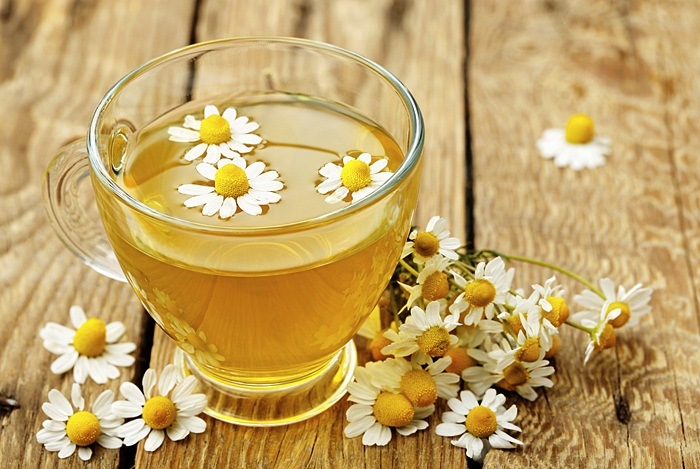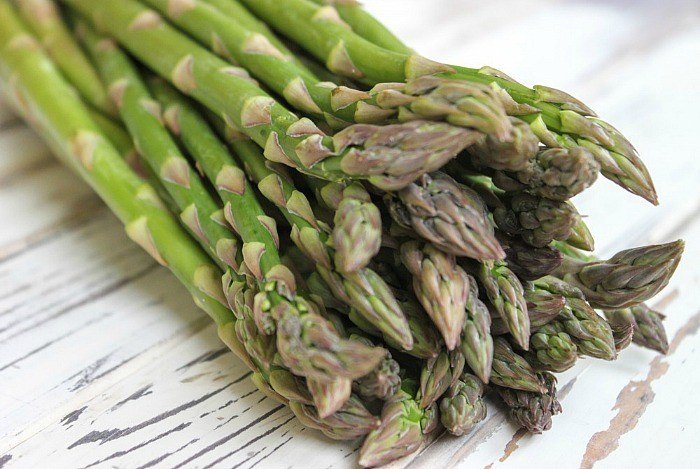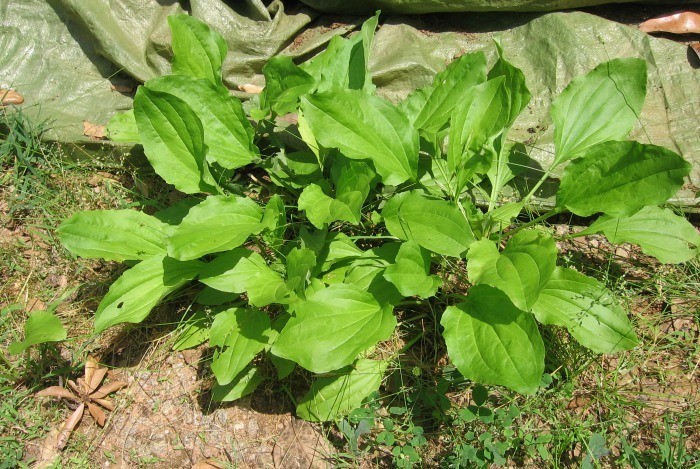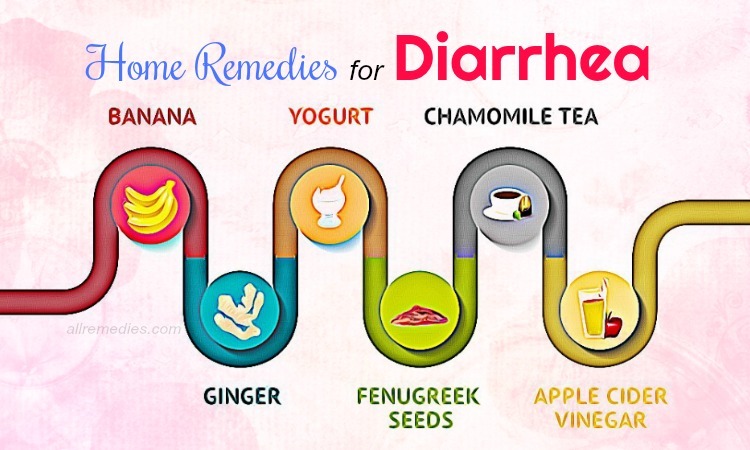
26 Amazing Home Remedies For Kidney Failure
Updated: 8/21/2019
CONTENTS
I – What Do Kidneys Function?
Kidneys play an important role in filtering waste products from the blood, regulating blood pressure, boosting the red blood cell production, and balancing electrolyte in your body. Particularly, sensors in kidney cells take part in regulating and controlling how much water is excreted and how the concentration of electrolytes is. Kidneys keep patients with illness and people after exercise from dehydration because they hold the water and increase the concentration of urine. When you have adequate water, the urine is clear. Kidneys have erythropoietin [1], a hormone that makes red blood cells by stimulating the bone marrow. Kidneys also have some special cells that are responsible for monitoring oxygen concentration in blood.
- 17 Trusted Home Remedies for Kidney Infection (This article was medically reviewed by Julie Freeman, MA, RD, LD, RYT)
- 43 Natural Home Remedies for Kidney Stones Pain
- 7 Tips How To Use Apple Cider Vinegar For Kidney Stones Treatment
II – What Is Kidney Failure?
Kidney failure is a kidney condition in which the kidneys do not function well. Depending on the types of kidney failure and its hidden causes, kidney failure has different signs and symptoms.
III – What Are The Causes Of Kidney Failure?
High blood pressure and diabetes are the two major causes of kidney (renal) failure. Kidney failure may be a complication of a chronic disease that stops the kidneys from functioning well. The causes of kidney failure depend on where the injury occurs. Prerenal kidney results from the decreased blood supply.
Here are specific causes of prerenal kidney:
- Blood loss
- Dehydration
- Inadequate intake of fluids
- Certain medications such as diuretics that result in excessive water loss
- Obstruction of the vein or renal artery that affects the blood flow to the kidney
Acute kidney failure is caused by:
- The overwhelmed immune system in the body due to infection, which leads to the shutdown or inflammation of the kidneys.
- Medications that are toxic and harmful to the kidney, such as nonsteroidal anti-inflammatory drugs (NSAIDs), lithium, Antibiotics like tobramycin or aminoglycosides gentamicin, and Iodine-containing medications
- Rhabdomyolysis [2] that causes muscles breakdown and affects the filtering system of the kidneys.
- Inflammatory glomeruli
- Abnormal destruction of red blood cells
Chronic kidney failure may last over months and years. The most common causes of this condition include high blood pressure, diabetes, and chronic glomerulonephritis. Less common causes of this condition are the prostate disease, kidney stones, interstitial nephritis, Alport’s disease, nephrotic syndrome, reflux nephropathy, and polycystic kidney disease.
AllRemedies Partner Solutions

Keep Asking Questions Until You Get The Answer You Need!
The Medical Experts are all here to answer your questions online or with a phone call.
IV – What Are The Symptoms And Signs Of Kidney Failure?
Kidney failure does not have clear signs and symptoms. However, people with kidney failure have a decrease in the ability to function of your kidneys. As a result, your system has difficulty in regulating water, balancing electrolyte, promoting red blood cell production, and clearing waste products from your body.
Other symptoms of kidney failure include weakness, lethargy, shortness of breath, swelling, loss of appetite, metabolic acidosis, congestive heart failure, high blood potassium, and low level of calcium blood. Kidney failure symptoms also are drowsiness, less flow of urine in urination, water retention, headache, physical inactivity, weakness, confusion, chest pain, fatigue, and abdominal pain, or nausea [3].
However, if not treated soon, the consequences of kidney failure can lead to discomfort and pain in your body parts.
V – How To Prevent Kidney Failure?
Kidney failure may lead to serious consequences if not treated soon. Therefore, prevention is better than treatment. You can keep kidney failure and kidney diseases at bay by changing your habits. The first thing on how to prevent kidney failure is to avoid its triggers. Three common triggers of kidney failure are high blood sugar, high cholesterol, and high blood pressure. The high level of blood sugar in your body may damage kidneys.
High cholesterol and high blood pressure make your kidneys work hard and put too much pressure on them.
How can you prevent kidney failure and kidney diseases? Control your blood sugar. Before it worsens, you need to control your blood sugar to reduce the risk of kidney failure and kidney diseases.
It is a great idea to monitor and test the level of your blood sugar at home. You should know the level of your blood sugar after eating 1 to 2 hours to understand whether you consume appropriate food or not.
VI – Diagnosis & Treatments
To diagnose kidney failure, doctors do some blood tests to measure creatinine, blood urea nitrogen, and glomerular filtration rate (GFR) [4].
Good news for someone interested in natural home remedies are that the symptoms of kidney failure may be improved with the help of numerous natural remedies. These following remedies do not treat kidney failure completely; however, it is a great idea to combine them with medical treatments to fasten the healing process and prevent the progression of kidney failure.
VII – Top 26 Home Remedies For Kidney Failure In Human – Effective Remedies Give You A Significant Relief
You need immediate treatment to make your kidney function back normally if you have kidney failure. In this article, we reveal to you the top 26 home remedies for kidney failure relief in humans without any side effects. This writing lists the best natural treatments to get rid of kidney failure from reliable sources. Nevertheless, it is only for informational purposes and not aimed to give medical advice. Continue reading this writing to discover these 26 home kidney failure remedies in detail!
1. Blueberries
Blueberry is considered one of the effective home remedies for kidney failure. Blueberries are often used to make sauces, juice, or spices. They can be eaten as a fruit. Eating blueberries help alleviate urinary tract infections [5] that affect the function of the kidneys [6]. It is recommended to add blueberries to daily diet to fasten the healing process of kidney failure. Blueberries are loaded with fiber, carbohydrates, anthocyanidins [7], vitamin A, and flavonoids that bring plenty of benefits for human health[8]. Moreover, blueberries possess a great source of minerals, vitamins, and antioxidants, which are effective in lowering cholesterol in the blood [9].
2. Apple
Apple is one of the most frequently consumed fruits in the world. Apples, which contain a large number of bioactive components, may help lower the risk of chronic diseases, such as heart disease [10]. Regular apple consumption also has been linked to the prevention of type 2 diabetes [11]. Besides, in older women, eating apples may reduce death rates induced by cancer [12]. Moreover, it is recommended that apples should be added to the daily diet of patients suffering from renal damage because they are low in potassium [13].
3. Cabbage
Cabbage is a popular cruciferous plant that originated from the Mediterranean. Cabbage also has a low content of potassium, so kidney failure patients should consume it daily [13]. In addition, cabbage contains powerful antioxidants[14] [15], which protect body cells from free radical damage[16]. Also, red cabbage is highly rich in anthocyanins that have been reported to a lowered risk of cardiovascular disease [17]. Increasing anthocyanin intake may reduce blood pressure and arterial stiffness [18]. Furthermore, cabbage is crammed with numerous essential vitamins and minerals [19].
4. Cauliflower
Cauliflower is one of the veggies that chronic kidney disease should eat [13]. The high content of fiber [19] in cauliflower may help to decrease the rate of getting heart disease, enhance the function of gut, lower body weights, and improve the digestive system [20] [21]. Moreover, studies show that white cauliflower is beneficial in fighting some forms of cancer. It is also rich in vitamin A, thiamine, riboflavin, niacin, vitamin C, calcium, iron, phosphorus, all of which benefit human health [22].
Note: You should not overcook cauliflower because it can lead to nutrient loss.
5. Chamomile Tea

Chamomile tea has been widely drunk for many years because of its health benefits. Chamomile tea contains antibacterial properties and antioxidant effects that can help to boost the strong immunity system [23]. A strong immune system plays an important role in protecting your body from ailments, such as infection and cold. Moreover, chamomile tea may help treat some complications of diabetes, including kidney damage [24]. Furthermore, chamomile tea has a positive effect on sleep quality and depression [25]. Drinking chamomile tea may ameliorate wound healing, decrease photodamage, and increase the elasticity of skin [26].
6. Goldenrod Tea

Goldenrod, known as solidago, is a useful plant for many health conditions. Thanks to its diuretic properties, goldenrod may boost the urine flow and remove excess water through kidneys and bladder [27]. Goldenrod may aid in the treatment of chronic kidney inflammation, which leads to kidney failure [28].
In addition, animal studies have shown that goldenrod extract may reduce weight [29], fight against tumor cells [30] and have anti-aging effects [31].
7. Aloe Vera
Aloe vera is one of the most wonderful natural remedies for kidney failure. It has a major source of necessary vitamins such as vitamin C, A, E and minerals which are zinc, chromium, and manganese [32]. Additionally, aloe vera extract contain anti-inflammatory, antibacterial, and antiviral effects [33]. Besides, it has been reported that aloe vera may aid to promote burn and wound healing. Metabolic effects in aloe vera are useful in the treatment of constipation and gastrointestinal disorders [34].
8. Vitamin C
Vitamin C, also known as ascorbic acid, has been linked to the treatment of chronic kidney disease[35]. Vitamin C acts as an antioxidant that prevents free radical damage. Besides, it is essential in enhancing the immune system and shorten the wound healing process. Fruits and vegetables such as oranges, grapefruit, broccoli, strawberries, and cantaloupe are highly packed with vitamin C. Or, you can take vitamin C supplements as capsules every day.
9. Drink Water
No one can deny the significant role of water in our health. Drinking more water has been reported to a reduced risk of chronic kidney disease and promote the function of kidney [36]. It is indicated that enough water consumption may help prevent constipation, asthma, and urinary tract infection [37]. Moreover, drinking water is very important if you want to reduce fat and lower body weight [38]. Furthermore, water helps us avoid dehydration, which may lead to dry and cracked skin.
10. Baking Soda

Baking soda, also known as sodium bicarbonate, is often seen as a fine powder form. Baking soda possesses salty taste and alkaline properties. According to a study, baking soda may slow down the progress of decline of kidney function and lower the risk of renal failure [39]. In addition, the ergogenic effects of baking soda may fight against tiredness and improve exercise performance [40]. People also use baking soda as a mouthwash because it may freshen breath [41] and whiten teeth. Its antibacterial properties aid to prevent harmful bacteria [42].
11. Healthy Diet
A healthy diet has a vital role in the treatment of chronic kidney disease. It may reduce mortality in patients with renal disease. According to researchers, a healthy diet for renal failure sufferers should consist of fruit, vegetables, fish, legumes, whole grains, and fibers. Besides, these patients also should cut down on the intake of red meat, sugar, and sodium.
12. Exercise
It is undeniable that exercise brings a wide range of benefits for human health. Exercise such as walking and yoga has been reported to boost your mood and reduce anxiety and depression [43]. Besides, physical activities may enhance muscle growth and decrease their breakdown [44]. It also helps to improve cognitive performance in the elderly[45]. Moreover, regular exercise has been linked to the improvement in patients with chronic renal failure [46].
13. Asparagus

Asparagus is grown in many countries of Asia and Europe. It is described as an effective home remedy for kidney damage [47]. Asparagus contains a good source of vitamins and minerals such as vitamin K and folate [48]. Studies indicate that vitamin K helps reduce blood clotting and promote bone metabolism [49]. Folate (vitamin B9) is a necessary nutrient for pregnant women and DNA replication [50]. Additionally, asparagus is rich in powerful antioxidants that protect cells against oxidative stress damage. Oxidative stress may cause aging [51], chronic inflammation, and even cancer [52]. Plus, thanks to its high content of fiber, eating asparagus may help people in the process of losing weight [53].
14. Ginger
Ginger is among the most common and delicious spice in the world. Gingerol is the biological property of ginger, which is an amazing agent for the treatment of several diseases [54]. Gingerol also may inhibit the development of colon cancer cells because of its anti-inflammatory and antitumorigenic activities[55]. Ginger has been reported to have protective effects on chronic kidney failure [56]. Besides, it is released that ginger is effective in fighting against nausea and vomiting [57]. Ginger is also used as a pain reliever for muscle pain induced by eccentric exercise [58]. Moreover, ginger may alleviate knee pain in osteoarthritis sufferers [59].
15. Olive Oil
Olive oil has been one of the essential oils for thousands of years. It is crammed with antioxidants that lower the risk of getting cancer [60]. Monounsaturated fatty acids in olive oils may prevent heart disease and decrease cardiovascular mortality [61]. Besides, a phenolic component in olive oil has been linked to a reduced risk of Alzheimer's disease [62]. Furthermore, olive oil has some beneficial effects in treating chronic renal disease [63].
Pure olive oil is the cheapest one. It is not suitable for you to ad pure olive oil to your salads; however, it can be used as a good cooking oil. You should not use olive oil to deep fry because it may lose some necessary nutrients.
16. Java Tea

Java herb is also known as Orthosiphon stamineus. Daily java tea consumption may excellently mitigate pain caused by chronic renal failure [64]. Due to its inflammatory properties, java tea may aid to protect against osteoarthritis [65]. Phenol in java tea [66], which acts as an antioxidant, prevents the damage of harmful free radicals.
17. Plantain

Plantains are in the banana family, which are starchier and less sweet than bananas. It has been indicated that diuretic properties in plantain may enhance kidney health by flushing impurities out of the body [67]. Plantains possess a good source of complex carbohydrates, vitamins and minerals [68]. These nutrients brings a lot of advantages for human health. Plus, plantains are rich in fiber, which may lower the risk of coronary cardiovascular disease, stroke, diabetes, and obesity [69].
Directions:
- Prepare 1 tablespoon of fresh or dry whole plantain, 1 cup of boiling water and honey
- Put plantain in a teapot
- Pour the boiling water into the pot
- Let it steep for 10 minutes
- Strain the liquid
- Add one or two teaspoons of honey to this tea
- Drink this tea every day
18. Tomato
Tomato is one of the healthiest foods in the world. Tomato contains a high content of lycopene that benefits patients with chronic kidney disease. Lycopene is a potent antioxidant, which protects against oxidative stress damage. Oxidative stress may lead to several chronic diseases such as cardiovascular disease, cancer, diabetes, diabetes, and eye disease [70]. In addition, the study found out that lycopene also may lower LDL (bad) cholesterol and triglyceride [71].
19. Asian Ginseng
Ginseng is one of the excellent tonic herbs that are effective in treating a variety of illness conditions and strengthening the physical health of patients. Asian ginseng is also called Panax Ginseng. Ginseng has beneficial effects on releasing acute renal failure [72]. Moreover, ginseng consumption may effectively enhance the immune system and protect body cells from harmful bacteria [73]. Furthermore, red ginseng has been claimed to be useful in the treatment of cancer [74]. Panax ginseng also may fight against fatigue and improve exercise performance [75].
Ginseng is available in capsules, tincture, and tea. Although Asian ginseng does not show any unwanted side effects, you should consult your doctor carefully before taking.
20. Astragalus
Astragalus has been well-known as a traditional Chinese medicine for centuries. It is often utilized to alleviate symptoms of chronic renal disease [76]. Astragalus has the ability to enhance the immune system that protects against harmful bacteria and viruses [77]. Besides, astragalus may bring benefits to patients with chronic cardiovascular failure [78]. Additionally, astragalus has been used in China to deal with types 1 and 2 diabetes mellitus thanks to its anti-diabetic properties [79].
Astragalus is available in various forms, including liquid, capsule, tea, tincture, tablet, and powder. You should consult your doctor before taking astragalus for your health condition.
21. Parsley
Parsley has been linked to the reduction of kidney damage and the prevention of renal disease [80]. Parsley is crammed with vital vitamins and minerals such as vitamin C, A, K, and folate [81]. Vitamin C plays a pivotal part in preventing chronic diseases such as cancer, atherosclerosis, diabetes, neurodegenerative disease [82]. Moreover, vitamin K may help increase bone mineral density and enhance bone growth [83].
Directions:
- Prepare a few parsley leaves
- Boil them with water for a few minutes
- Strain the liquid
- Let it cool and sip it slowly
22. Corn Silk
Corn silk is the thin, fine, yellow strands of corn. The combination of corn silk and binahong may decrease oxidative stress and treat renal failure. It promotes urine flow and removes toxins and wastes from the kidneys[84]. Research has claimed that corn silk may reduce the feelings of anxiety, depression, and tiredness [85]. In addition, a study in rats explored that corn silk extract may considerably decrease blood pressure [86].
If you want to discover more about other healthy natural remedies for kidney failure, continue reading the next part of this writing.
23. Turmeric
Turmeric, a tasty spice used in Indian cuisine, has been considered as a potential herb in Ayurveda and Traditional Chinese Medicine to treat a variety of disorders and ailments. Curcumin in turmeric is proved to have inflammatory effects on chronic kidney disease [87]. Researches said that curcumin has the ability to manage stress and depression due to its antidepressant effects [88]. Curcumin also has protective effects on cardiovascular disease [89] and a decreased risk of getting cancer [90]
Turmeric should be incorporated into your regular diet. You can consume turmeric with water and food and take turmeric supplements as capsules.
Here is the recommended dosage:
- Standardized powder: 400 to 600 mg 3 times daily
- Fluid extract: 30 to 90 drops daily
- Tincture: 15 to 30 drops 4 times daily
24. Red Sandalwood
Red sandalwood is also known as Santalum album should be taken over the years when you suffer from kidney failure and other kidney diseases. The natural diuretic properties help your body to remove the excess water like urine from your body. Red sandalwood contains antimicrobial properties [91] and cooling effect that soothes the urinary tract. This excellent herb is considered as a great urinary alkaliser.
You can take red sandalwood capsules as home remedies for kidney failure after consulting your doctor carefully.
Alternatively, you can take red sandalwood tea.
- Take some leaves of sandalwood
- Put it in a cup of water
- Boil it for a few minutes
- Drink this tea once daily
In addition to kidney failure, red sandalwood can treat the damaged skin, boils, inflammation, gout, rheumatism, and wrinkles.
Drinking red sandalwood tea is good for the health. Therefore, you should drink it regularly even if you do not get diagnosed with kidney failure.
25. Marshmallow Root
Mallow root known as marshmallow has been widely used to treat skin conditions and soothe sore throats. Marshmallow root is beneficial for kidney’s health by following reasons.
Marshmallow not only soothes a sore throat but also relieves swelling in mucous membranes. When urinary tract is swollen, it is likely to get damaged by passing sediment.
Moreover, marshmallow increases the urine flow due to its diuretic properties. It can help the body to flush the minerals and toxins from the kidneys as well as the bladder.
Studies found out that marshmallow contains a great source of antioxidants [92] that can help to protect your cells and your body from free radical damage, promoting the kidney’s health.
Therefore, if you want to look for home remedies for kidney failure, you should not ignore marshmallow root.
Marshmallow has a variety of health benefits, not just for the kidneys. If you want to use marshmallow as home remedies for kidney failure, you should consult your doctor and do not hide anything related to your health condition.
26. Dandelion
Dandelion plant grows throughout Europe, North America, and Asia. Dandelion attracts many health enthusiasts and herbalists because of amazing benefits and properties. All parts of dandelion such as the roots, leaves, and flowers are edible while some parts are medicinal. Dandelion is considered as one of the effective home remedies for kidney failure. It has minerals, proteins, vitamins, and diuretic properties. Therefore, it can help treat your kidney failure and promote kidney health [93]. Moreover, this herb is also useful for increasing excretion and urine production. For best results, you can take one to two capsules of dandelion a day. B vitamins, vitamin A, C, and D are present in the leaves of dandelion. Moreover, dandelion contains a great source of minerals such as potassium, iron, and zinc. Not only dandelion leaves but also dandelion roots can treat kidney failure effectively and naturally. Dandelion roots reduce the frequency of urinary tract infections due to antibacterial properties. Moreover, dandelion contains anti-inflammatory properties that help to dissolve kidney stones. Drinking dandelion tea is believed to improve kidney failure. However, it is important for you to talk to your doctor before using dandelion to treat kidney failure, kidney stone, and other health conditions.
The daily recommended dosage for patients with kidney failure is 2 g to 8 g of dried dandelion root divided into three times per day. Alternatively, take 250 mg doses of powdered extract in capsules three or four times daily.
We would like to note that dandelion may react with certain drugs that treat high blood pressure or diabetes. Moreover, if you suffer from gallbladder disease, dandelion should not be taken for more than one month.
For best results, you can take one to two capsules of dandelion a day.
If you want to know more about natural home remedies for other diseases and conditions, go to our main Home Remedies page. These above remedies will certainly give you some useful methods to fight kidney failure. However, the article is only for informational purposes. Thus, you should meet your doctor to get advice before applying any home remedies. If you have any questions, or you know other home remedies for kidney failure, please leave them below, we will answer you as soon as possible.

GET FREE ACCESS!
Lorem Ipsum has been the industry's standard dummy text ever since the 1500s, when an unknown printer took a galley of type and scrambled it to make a type specimen book. It has survived not only five centuries
Also on
JOIN THE CONVERSATION










